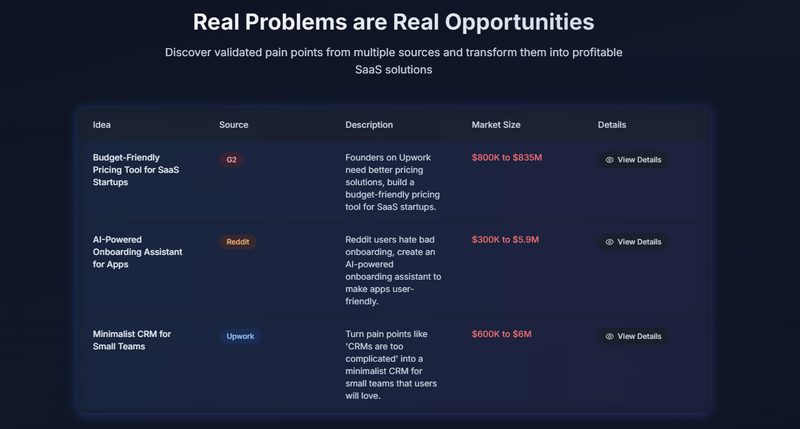You’re in the middle of something, work, a game, maybe even just browsing, and your computer crashes. Again. Maybe it freezes. Maybe it goes straight to a blue screen. Maybe it just reboots like it’s got a mind of its own.
Either way, you’ve now entered a frustrating loop: guessing what’s wrong, Googling error codes, restarting five times, and hoping this time it’ll work.
Spoiler: it won’t. Not until you deal with the real issue.
This post breaks down the most common reasons your computer crashes, what you can try, and—when you’re done playing IT detective—how to get it fixed the right way.
The Four Most Common Reasons Your Computer Crashes
Let’s get straight to the point. If your computer is crashing regularly, it’s probably because of one of these four problems:
1. Bad Drivers
Drivers are the invisible glue between your hardware and your operating system. If a driver is out-of-date, corrupted, or just incompatible, it can crash your whole system, especially during updates, gaming, or heavy use.
Clues it’s a driver issue:
-
Crashes started after a Windows update
-
You installed new hardware (printer, graphics card, etc.)
-
You see random error codes but no clear pattern
Fixing this usually involves diving into Device Manager, uninstalling/reinstalling specific drivers, or rolling them back. It sounds simple until you uninstall the wrong one or the system won’t boot afterward.
2. Overheating
Your CPU and GPU generate heat. A lot of it. If your cooling system isn’t keeping up your system will shut itself down to avoid frying.
Clues it’s overheating:
-
System gets louder before crashing (fans working overtime)
-
It only crashes during gaming or multitasking
-
The laptop feels hot as hell
Temporary solution: prop it up, clean the vents. Real solution: a proper internal cleaning, paste reapplication, and airflow optimization. Most people won’t crack open their machine—and shouldn’t.
3. Faulty RAM or Storage
Bad memory can throw your whole system into chaos. So can a failing hard drive or corrupted SSD. These are the crashes that seem totally random because your system can’t access the data it needs in time.
Clues it’s hardware:
-
Programs crash independently before the full system goes down
-
Crashes get worse over time
-
You hear odd clicks or stutters when accessing files
You can run diagnostics, but again—knowing what the test results mean and which part needs replacing is its own skill. Guess wrong, and you’re buying parts you don’t need.
4. Malware or OS Corruption
A virus, registry corruption, or an unstable system file can cause random shutdowns or crashes with zero warning.
Clues it’s software-based:
-
Your system was running fine until one day it wasn’t
-
Popups, lag, or strange processes showing up in Task Manager
-
Crashes happen even when you’re doing nothing
You can scan. You can run sfc /scannow or system restore points. But if something’s rooted in deep, those fixes won’t hold.
The Hidden Cost of Guessing Wrong
You spend hours reading Reddit threads, watching YouTube tutorials, downloading shady “cleaner” software that makes things worse.
Meanwhile, your computer keeps crashing, you lose your work, your stress builds, and you still don’t have a fix.
There’s a moment where it’s no longer about saving money. It’s about saving time, saving your sanity, and saving your files before something breaks for good.
That’s the moment you stop guessing and bring in someone who knows how to diagnose it properly.
When to Call for Help (and What I Actually Do)
You don’t need help for every little thing, but when crashes become regular, when you’re losing files, or when your machine becomes unreliable, that’s when it’s time.
Here’s what I do when I step in:
-
Run targeted diagnostics to pinpoint the root cause
-
Clean up background processes and startup conflicts
-
Check drivers, thermal performance, and hardware behavior
-
Isolate whether it’s a Windows problem, hardware issue, or user-level mistake
-
Fix it remotely—no guessing, no wasted time
And I charge one flat rate. No upsells, no fake “consultation fees.” You get real answers and a real solution.
Why I Don’t Give You the Full Fix in This Post
If you came here hoping for a one-size-fits-all fix, I’ll be straight with you: that doesn’t exist.
Every crash has a cause. Every machine is different. And what works for one system might brick another.
What I’m giving you is the truth: most people crash because of predictable, fixable reasons—but it takes someone who knows what they’re doing to cut through the noise and fix it properly.
You could keep poking around. Oooooor you could hand it to someone who can handle it.
What Happens If You Ignore It?
Honestly? It gets worse.
-
That random crash? Becomes an every-hour issue.
-
That corrupted file? Spreads into more.
-
That hard drive clicking? Could be your last warning.
A crashing system is the computer version of chest pain. Sometimes it’s nothing. Sometimes it’s a full breakdown waiting to happen. Do you really want to wait and find out?
Final Word
I built my business fixing problems like this. Fast. Clean. Most issues I can solve remotely in under an hour.
If your system’s crashing and you’re done guessing, I’ve got time.
If you’re tired of forums that never give a straight answer, I’ve got the fix.
And if you want to know how I turned this into consistent income, that’s in the playbook.
But for now?
Start by getting your system stable again.
Flat rate. No fluff. Just results.
Or grab the full blueprint here:
Dee Bee Playbook – The $75 Hustle
You’re one fix away from peace of mind.
Let me know when you're ready.



















!["Afrocentric digital artwork featuring [subject], showcasing rich melanin tones, cultural symbolism, and bold colors. Perfect for modern home decor, Black heritage appreciation, and artistic expression. High-quality print available in multiple sizes."](http://deebeefreelancing.com/cdn/shop/articles/Untitled_design_3.png?v=1740011344&width=800)
